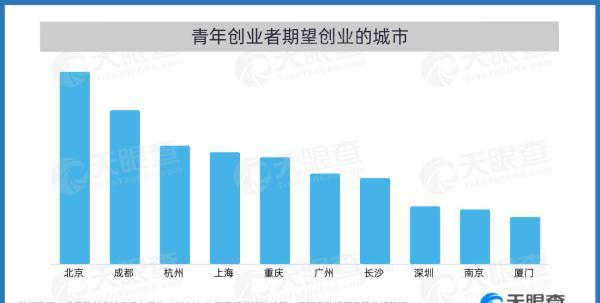Entrepreneurial vitality continues to burst forth, and entrepreneurs favor cities that quietly change.
A few days ago, China Youth Daily, Tianyancha and Qingchuang Toutiao client jointly released the "Youth Entrepreneurship City Vitality Report (2021)". The report shows that from 2011 to 2020, more than 44 million new startups were added in China, that is, on average, 1 startup was established every 7 seconds.
According to reports, the report analyzes from multiple dimensions such as the change in the number of new startups added each year, the expectation of young entrepreneurs to start a business city, and the priority selection of those entrepreneurial industries.
In addition, based on literature combing, policy induction, empirical research, tianyancha and other public data applications and expert analysis and demonstration, the report proposes the concept of "Youth Entrepreneurship City Vitality Index" based on the top 100 cities in the national GDP ranking released in 2021, and scientifically and systematically explores the dynamic environment and portrait of youth entrepreneurship cities, depicting the vitality of young entrepreneurial cities.
The entrepreneurial attractiveness of new first-tier cities is on the rise
The report shows that in the decade from 2011 to 2020, China's startups have grown year by year. Among them, in 2014 proposed by "Double Creation", the year-on-year growth rate of new registrations of start-up companies in China reached 45.7%, which was the highest year-on-year growth rate of start-up companies in ten years.
In 2020, the epidemic had a certain degree of impact and impact on the economic situation, but the number of new registrations of start-up companies in China "grew against the trend", adding more than 7.1 million new start-up companies throughout the year. At the same time, with the rapid growth of the number of start-up company registrations, from 2011 to 2020, China will add nearly 30,000 new entrepreneurial service institutions.
Li Jiahua, an expert in entrepreneurship education, said, "Urban vitality is the best resource and gathering place to attract young people to grow and develop, and youth entrepreneurship is the vitality of the city and the soul of development." ”
From the perspective of selecting entrepreneurial cities, the report quantitatively evaluates the vitality of youth entrepreneurship in 100 cities, and constructs the vitality index of youth entrepreneurship cities from five perspectives: government support, economic environment, resource endowment, entrepreneurship incubation, and scientific and technological innovation.
Among them, in the three indicators of government support, economic environment and entrepreneurial incubation, Beijing, Shanghai, Guangzhou, and Shenzhen are in the forefront; in the resource endowment and scientific and technological innovation indicators, the new first-tier cities show an upward trend.
Specifically, among the cities where young entrepreneurs expect to start a business, Beijing ranks first; Chengdu ranks second, with its attractive cultural creativity; Hangzhou, as the rising "first city of digital economy", ranks third in the country; Shanghai, Chongqing, Guangzhou, Changsha, Shenzhen, Nanjing, and Xiamen are also highly concerned by entrepreneurs.

Artificial intelligence, big data, etc. have become the preferred industries for entrepreneurship
For the choice of young entrepreneurs' industries, the report shows that hard technology tracks such as artificial intelligence and big data rank in the top two, accounting for 63.6% and 61.8% respectively; affected by factors such as national tide consumption and the Internet celebrity economy, the cultural and creative industry ranks third; the biomedical industry ranks last due to the high threshold for innovation.
At the same time, the report looks at the portrait of young entrepreneurs, of which the proportion of female entrepreneurs reaches 44.6% and the proportion of male entrepreneurs is 55.4%.
As for the motivation for entrepreneurship, the report shows that 67% of young people said that they can reflect their own value through entrepreneurship, and obtain ability improvement and social recognition; 51.7% of young people believe that entrepreneurship is to maintain their hobbies and hobbies and develop them into their own careers. It is worth noting that 51.7% of young entrepreneurs regard "entrepreneurship" as a choice of career path, breaking the traditional cognition of "career development path" in the past.
However, the entrepreneurial road is not smooth, young entrepreneurs face the bottleneck of entrepreneurship, the report shows that 52.63% of the respondents believe that "do not know how to finance" is the first problem of their entrepreneurship; at the same time, 49.16% of the respondents believe that the lack of network resources is another bottleneck.
Cities are more dynamic because of innovation, and urban economies are more competitive because of the concentration of young talents. The relevant person in charge of China Youth Daily said that at present, the industrial policies, resource elements and market environment in various cities are interlinked to form a synergy to jointly provide more fertile soil for youth entrepreneurship.
Source: CCTV